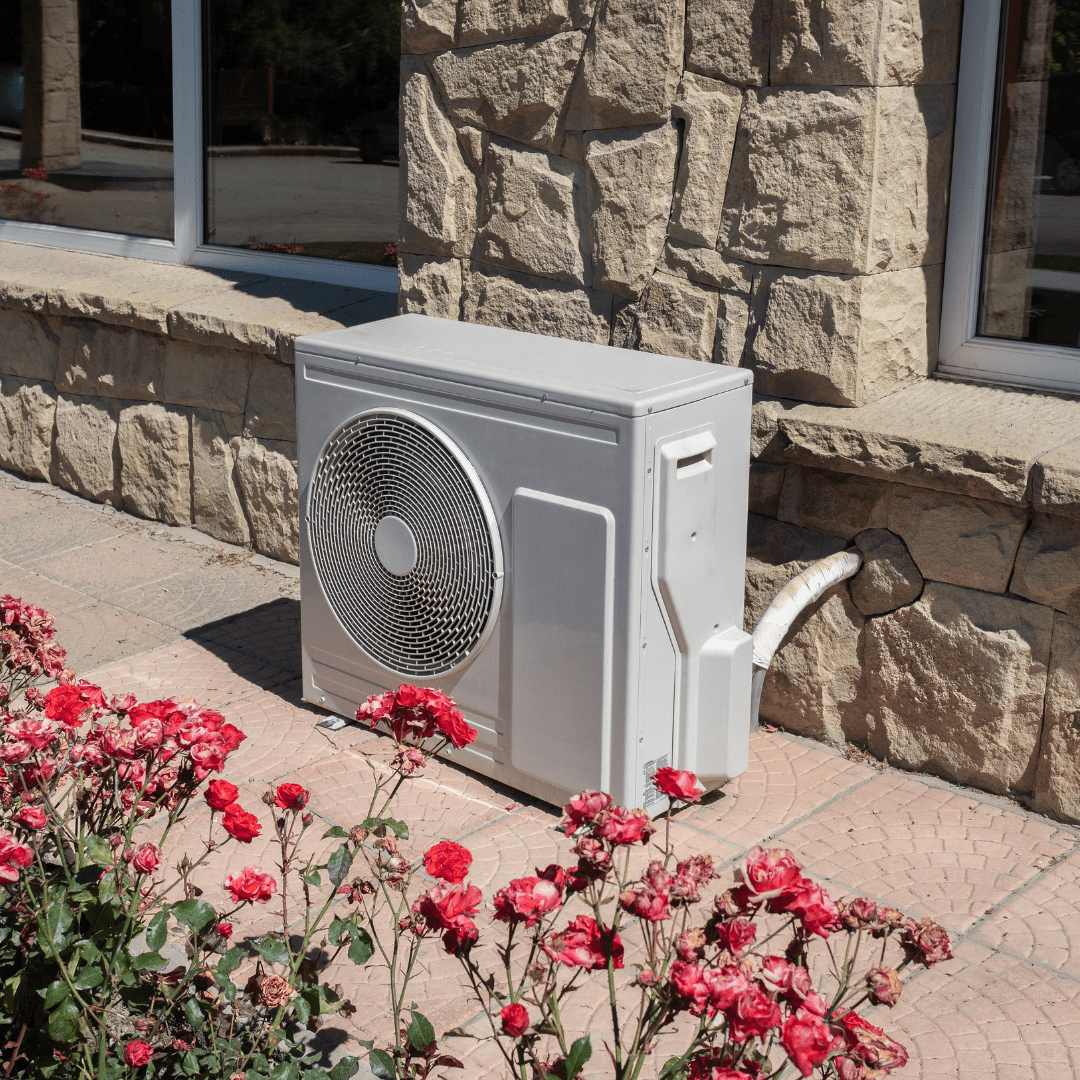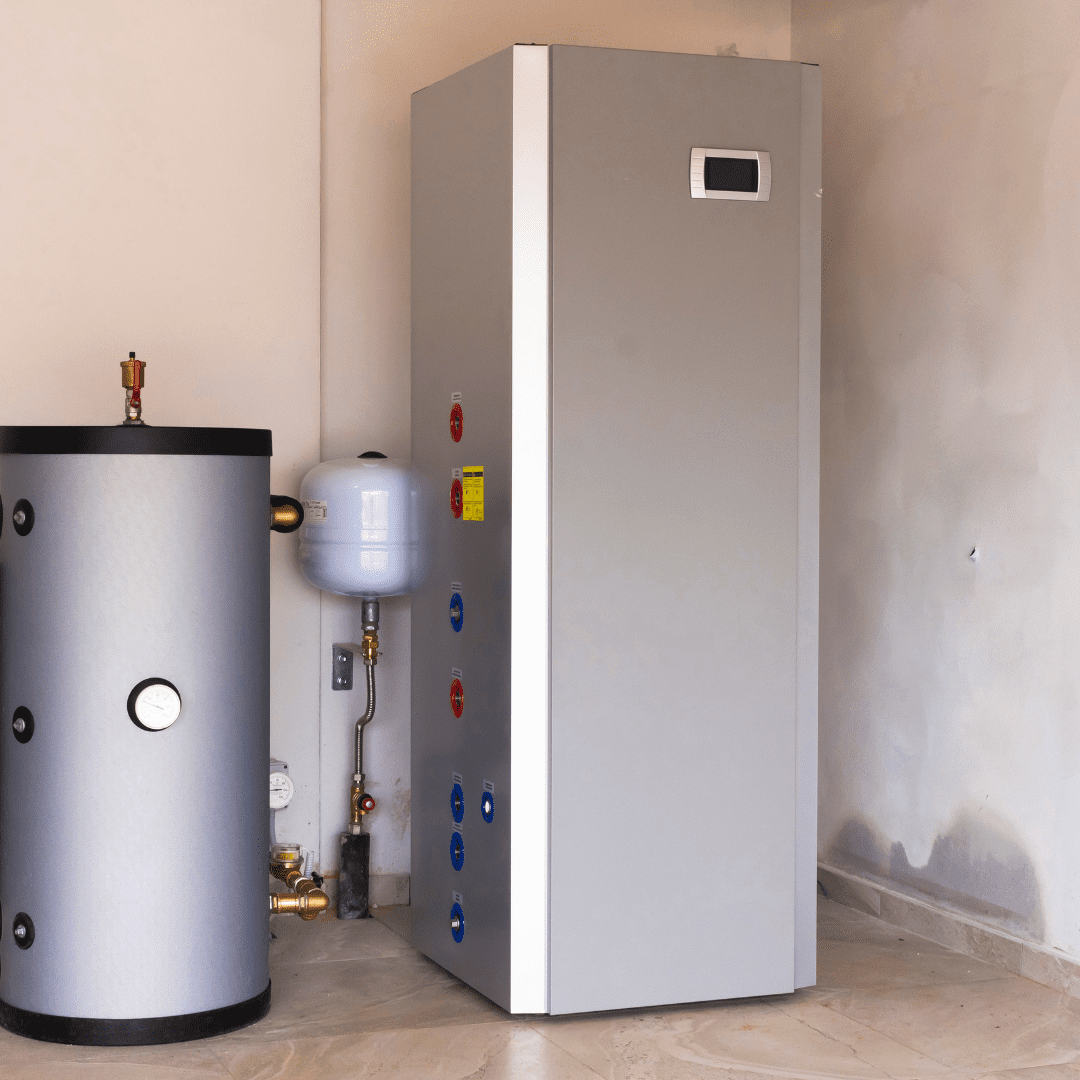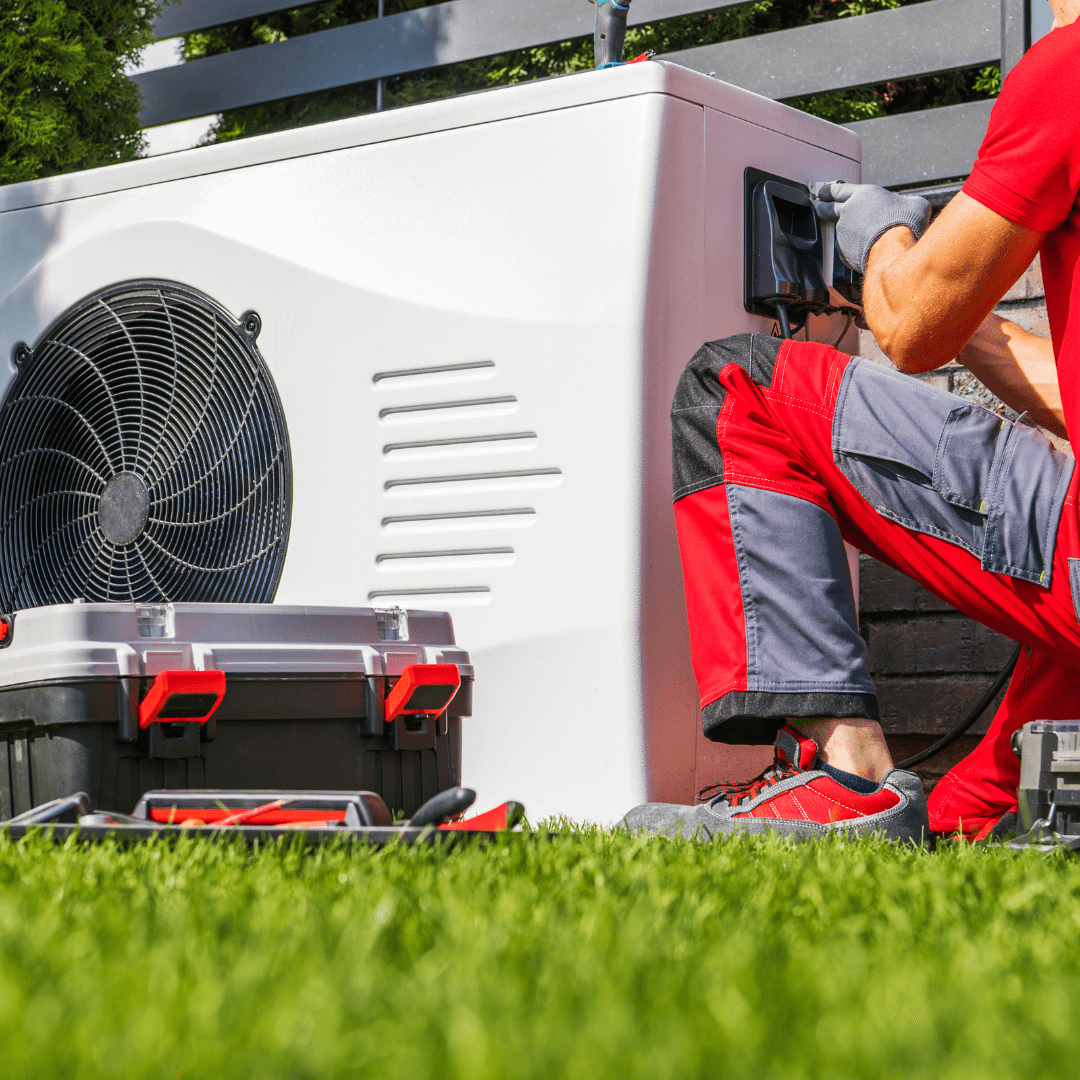
Chances are you’ve heard heat pumps mentioned quite a bit lately but it’s more than just a buzz word. These energy efficient, electric wonders are gaining in popularity in the United States due to new incentives via the Inflation Reduction Act and growing concern over the climate crisis. So what is a heat pump and why is this technology impactful to not just your home’s heating and cooling budget but also the environment? Let’s find out!
Heat pump technology
The name “heat pump” stems from how it works not what it does. In fact, they are incredibly versatile because they do more than just heat your home, they can cool it as well – all in one. But how does it work?
Unlike traditional furnaces that heat air with a flame fueled by gas or oil or air conditioners that cool air over a refrigerated coil, a heat pump achieves the optimal temperature in your home by moving heat around. All air, whether it is hot or cold, contains heat. Heat pumps move heat to where we want it to be. On a chilly day, a heat pump pulls heat from the air outside and moves it into the air in your home. On a hot day, it takes the heat from the air inside your home and pushes it outside to keep your home cooler.
Types of heat pumps
Heat pump technology is rapidly evolving to adapt to the needs of the consumer. In the Pacific Northwest, there are a variety of heat pumps that work well in our relatively mild climate:
Whole home heat pumps: These air-source pumps use heat from outside the home bringing it inside. Much like traditional central heating and cooling systems, it uses ducts to distribute the warm or cool air throughout your home. There are two main types of whole home heat pumps – unitary split and packaged. A unitary split system is a dual unit system that uses an indoor air handler connected to a ducting system with a separate outdoor heat pump unit. A packaged unit is a singular heat pump unit on the exterior of the building connected to the ducting system. These are ideal if you already have a duct system installed in your home or are ready to add one.
Split system heat pumps: This version of an air-source heat pump doesn’t require ducts. This option works well if you want to individually control the temperature in each room of your home or if you have an addition where the ducts in your home do not extend.
Energy efficient
Heat pumps operate solely on electricity. Since they simply move heat from one location to another, extra energy isn’t required to generate heat or cold air like in traditional heating and cooling options. In fact, heat pumps can be up to three to five times more efficient than other heating options such as furnaces, boilers, or electric baseboard heaters.
Benefits to homeowners
Energy efficiency translates into savings on your utility bill. The U.S. Energy Information Administration forecasts that the cost to heat the average household during Winter 2022-2023 is on the rise with natural gas likely to be 28% higher than last winter. While homes with electric heat will see a more modest 10% increase. Factor in the higher efficiency of a heat pump and the savings become even greater.
Benefits to the environment
Electric heat pumps mean that you won’t be burning fossil fuels inside your home potentially harming you or your pets or released into the atmosphere contributing to climate disruption. Since City Light’s electricity is carbon-neutral, replacing gas furnaces with electric heat pumps will reduce your home’s carbon emissions by 80-100%.
Installing a heat pump is an investment but you will reap the benefits in long term energy savings, comfort, and the peace of mind that comes from knowing you’re reducing your carbon footprint. Costs will depend on the type of heat pump you choose, size of your home, and how much labor is needed for installation. As with any home improvement project, getting multiple bids and working with an experienced, reputable contractor is always advised and make sure to ask your contractor about a City Light discount on your heat pump.
Additionally, thanks to the Inflation Reduction Act, starting this year households can use the expanded tax credits to deduct up to 30% of the cost of clean energy and energy efficiency upgrades to their homes including heat pumps. Plus, you can pair City Light incentives with the tax credits to bring the costs down even further. Find more information about our home energy solutions and federal clean energy tax credits today.



